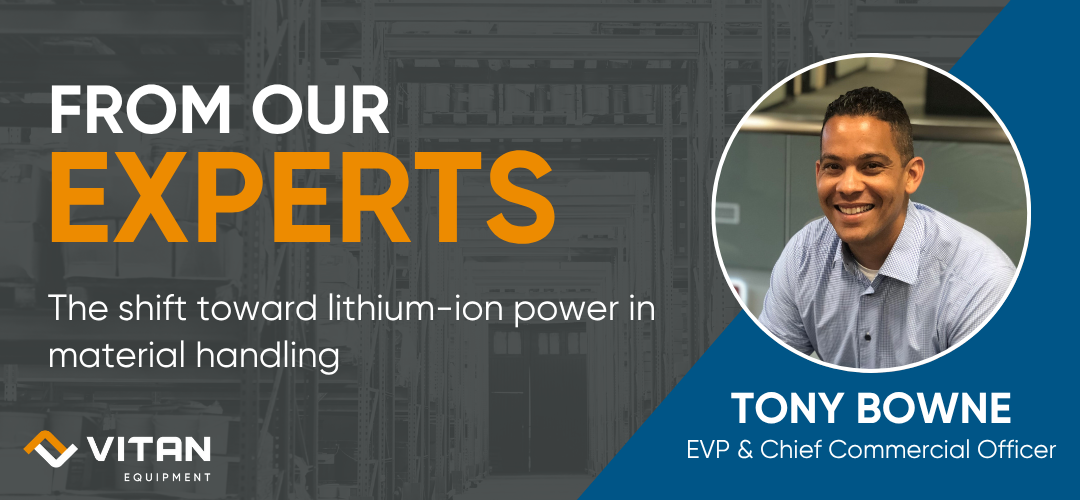
News
The Shift Toward Lithium-Ion Power in Material Handling

Forklifts have long been the backbone of warehousing and manufacturing operations, playing a critical role in material handling and logistics. For years, these machines have relied on internal combustion engines or lead-acid batteries. As technology advances, end users within the market have explored ways to improve power efficiency, improve the safety of their employees, reduce downtime, and reduce their carbon footprint.
There is a rise in demand for more efficient, reliable, and eco-friendly energy solutions. To answer that demand, lithium-ion forklift batteries offer a solution that addresses many of the limitations of outdated power sources.
Why Lithium-Ion Batteries are the Preferred Choice
Several factors contribute to the growing preference for lithium-ion batteries in forklift applications. Here are two of the big ones:
- First and foremost is their superior energy efficiency. Lithium-ion batteries have a higher energy density compared to lead-acid batteries, meaning they can store more energy in a smaller space and provide longer run times.
- Lithium-ion batteries are known for their rapid charging capabilities. Unlike lead-acid batteries, which can take several hours to charge, lithium-ion batteries can reach full capacity in a fraction of the time, making them an attractive option for high-demand environments. Additionally, opportunity charging is another effective method for short-term charging that causes no damage to the battery.
How Lithium-Ion Forklift Batteries Impact Service Needs
When it comes to a well-running fleet, regular maintenance is crucial. One of the most significant advantages for lithium-ion powered fleets, though, is the reduced maintenance required compared to other internal combustion or lead-acid powered forklifts.
Unlike lead-acid batteries, lithium-ion forklift batteries don’t require watering, acid adjustments, or equalizing charges, which lowers the overall maintenance burden and associated costs.
Internal combustion forklifts have a lower upfront cost. However, an internal combustion engine has more parts than an entire electric forklift. With more moving parts, more frequent service is required, increasing the total cost of ownership (TCO).
What We’re Noticing from Customers
As our customers convert their fleets to lithium-ion-powered forklifts, we expect them to see their ROI within three years. They are running longer shifts without interruption, and experience fewer breakdowns requiring costly repairs.
Lithium-ion batteries also contribute to a safer and more environmentally friendly workplace. They produce no emissions, reducing the carbon footprint and improving air quality in enclosed spaces.
Keeping an Eye on Material Handling
As the industry continues to evolve, we can expect further advancements in electric and automated forklift technology to edge out older ways of operating.
With Vitan Equipment as your material handling partner, we can assure you that lithium-ion forklift batteries aren’t just a trending energy solution– they’re a strategic investment in efficiency, safety, and sustainability. As more facilities experience the benefits firsthand, the shift away from traditional power sources becomes not only logical, but essential.
If you’re looking to reduce downtime, cut maintenance costs, and streamline your operations, we’re here to walk you through the transition. Connect with one of our experts today to explore how lithium-ion solutions can move your world forward!